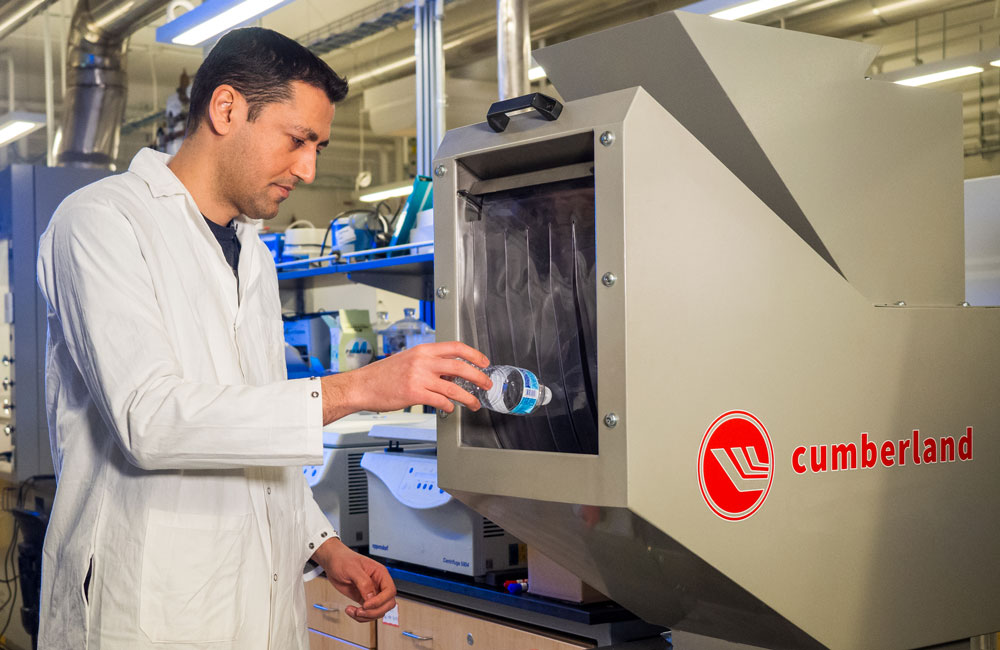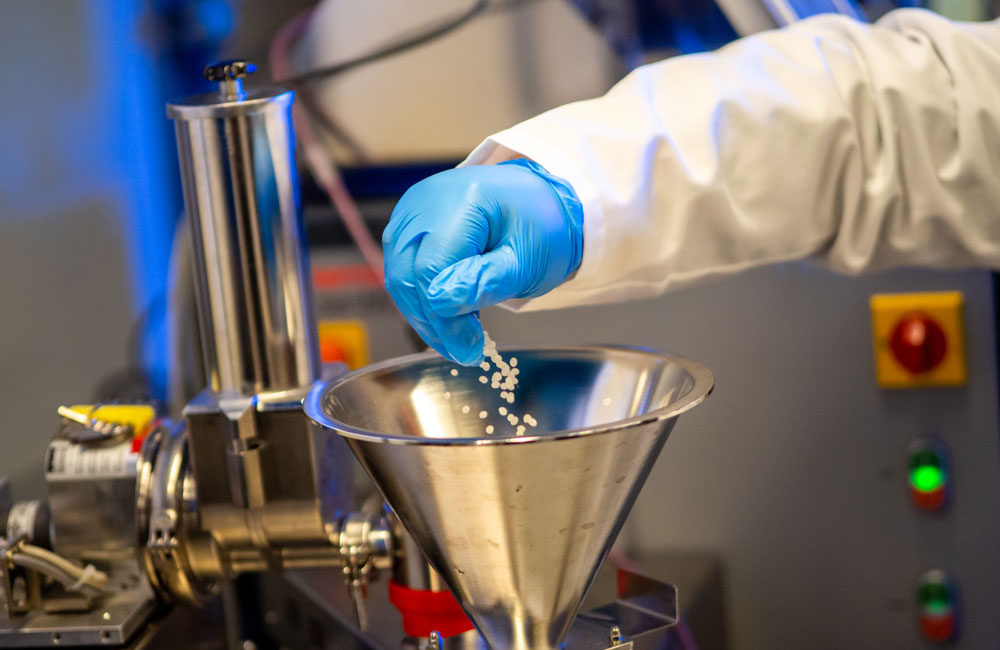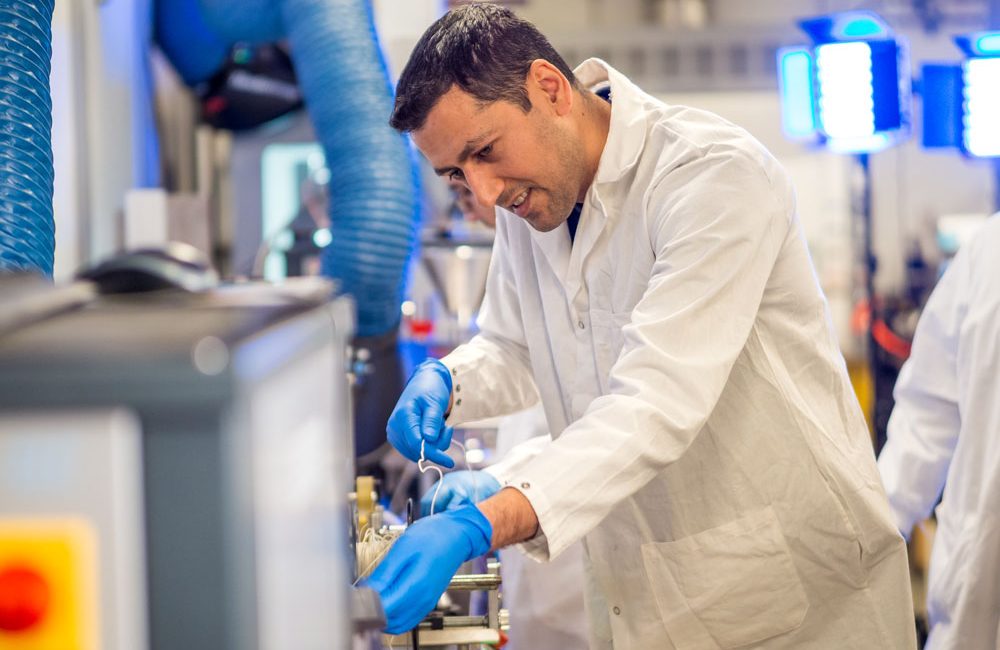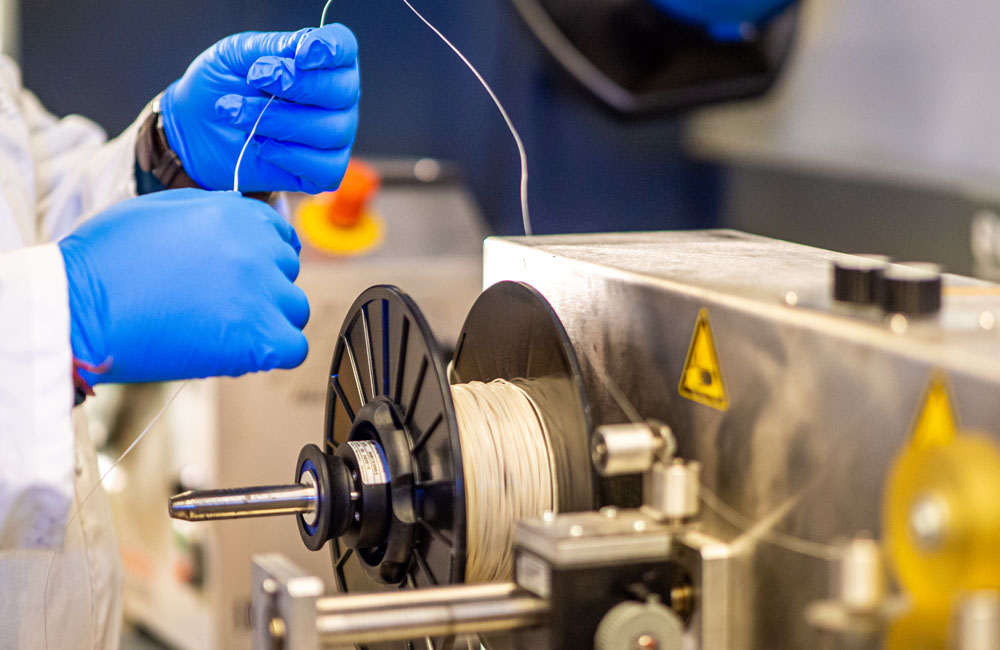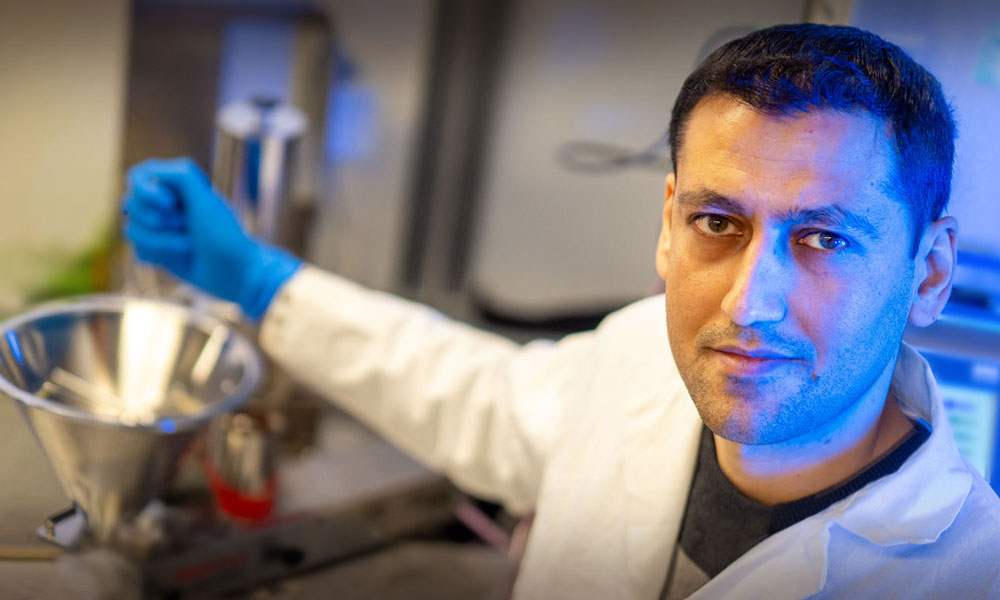
FROM BOTTLES AND STRAWS, TOYS AND TUPPERWARE to medical stents, eyewear and even tea bags, plastic is everywhere in our society. Although the meteoric rise of plastic was the result of its economy and ease of production, the question now is, what do we do with the estimated 380 million tonnes of plastic waste produced globally each year?
This wicked problem was something UBC Okanagan’s Dr. Mohammad Arjmand knew he could help solve thanks to the varied expertise and state-of-the-art plastic processing equipment available at the university.
“I’ve been working in plastic engineering for almost 15 years, and was mostly using virgin plastic in my research,” explains the School of Engineering Assistant Professor and Canada Research Chair (Tier 2) in Advanced Materials and Polymer Engineering. “But then I thought, what if I could do the same research with recycled plastic?”
In Canada, 79 per cent of plastics are dumped in landfills or natural settings, which creates huge social and environmental problems.
“I needed to do something for my community, beyond academia, and that’s where the idea first sparked. The reality is that we can’t readily remove plastics from our daily life, but we can devise solutions to prevent sending so much of it to the landfill.”
Plastic by the Numbers (Plasticoceans.org/the-facts)
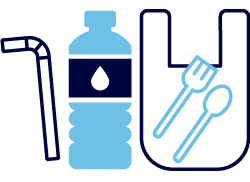
50 per cent of all plastic produced is thrown away after a few minutes
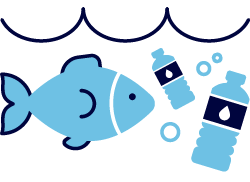
There will be more plastic in our oceans than fish by 2050
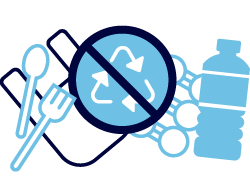
Less than 9 per cent of all plastic created gets recycled
The result was the creation of UBCO’s Plastics Recycling Research Cluster, an interdisciplinary team that is tackling the problem of plastics from various lenses—all with the goal of solving the problem from its root source.
“From a psychological perspective, the public needs to be more responsible when it comes to sorting plastics, so we’re exploring that in the research,” says Dr. Arjmand. “At the same time, my colleagues in the Faculty of Management are working with the provincial and federal governments to make plastic producers responsible for what they’re manufacturing.”
Dr. Aleksandra Dulic, an Associate Professor in the Faculty of Creative and Critical Studies, will hold exhibitions over the second and third years of the cluster to show the public how challenging plastic waste is and the initiatives UBCO is taking to address the issue. Finally, Dr. Arjmand’s team in engineering will try to give plastics a second life by melting, reshaping and repurposing them.
“Technically, recycled plastics can never offer physical properties on par with virgin plastics, so functional additives must be added to improve the new plastic’s physical properties,” he explains. “These additives could make it more mechanically robust, more electrically conductive or any other property you can think of.”
As part of the project, Dr. Arjmand’s team is working with Advanced BioCarbon 3D to create plastic composites that can be used in the plumbing and wiring systems of affordable 3D-printed homes in BC’s Kootenay region. A number of Indigenous communities have also partnered with the researchers, providing bio-based materials from forests on their lands. As witnessed in British Columbia year after year, the build-up of this material can lead to massive forest fires, prompting the research team to explore what happens when natural materials are added to plastic waste.
“It’s like killing two birds with one stone. First, we’re partially solving the problem of plastic waste. Second, we’re finding a solution for the bio waste in our wilderness.”
But perhaps the most unique aspect of the work is the involvement with Indigenous high school and undergraduate students; part of the research cluster’s annual budget is directed to hosting students for one week in the lab.
“There are 26 Indigenous communities working with our cluster partner Pacific North Coast Development Society. We want to help students from these communities become enthusiastic about the research and message back that something exciting is happening. Hopefully, we can help them consider UBCO while also changing their lives and their community through these affordable homes.”
Research experience opportunities in the labs are also offered through UBCO’s Indigenous Undergraduate Research Mentorship Program.
As for the future, Dr. Arjmand is confident that the research cluster’s work will positively impact the world of plastic recycling. “This is a niche area for UBC Okanagan, and I know we can play a pivotal role in reducing plastic waste to our landfills through some creative thinking and teamwork. It’s time to go beyond the boundaries of the university and impact British Columbia, Canada and the world.”
